Letter Bank Manager the tips guidelines be when drafting letter bank manager include name the bank branch. Ensure add subject line your letter. Also, sure the subject line concise on point. Letter Bank Manager Example. Date: To, Bank Manager _____
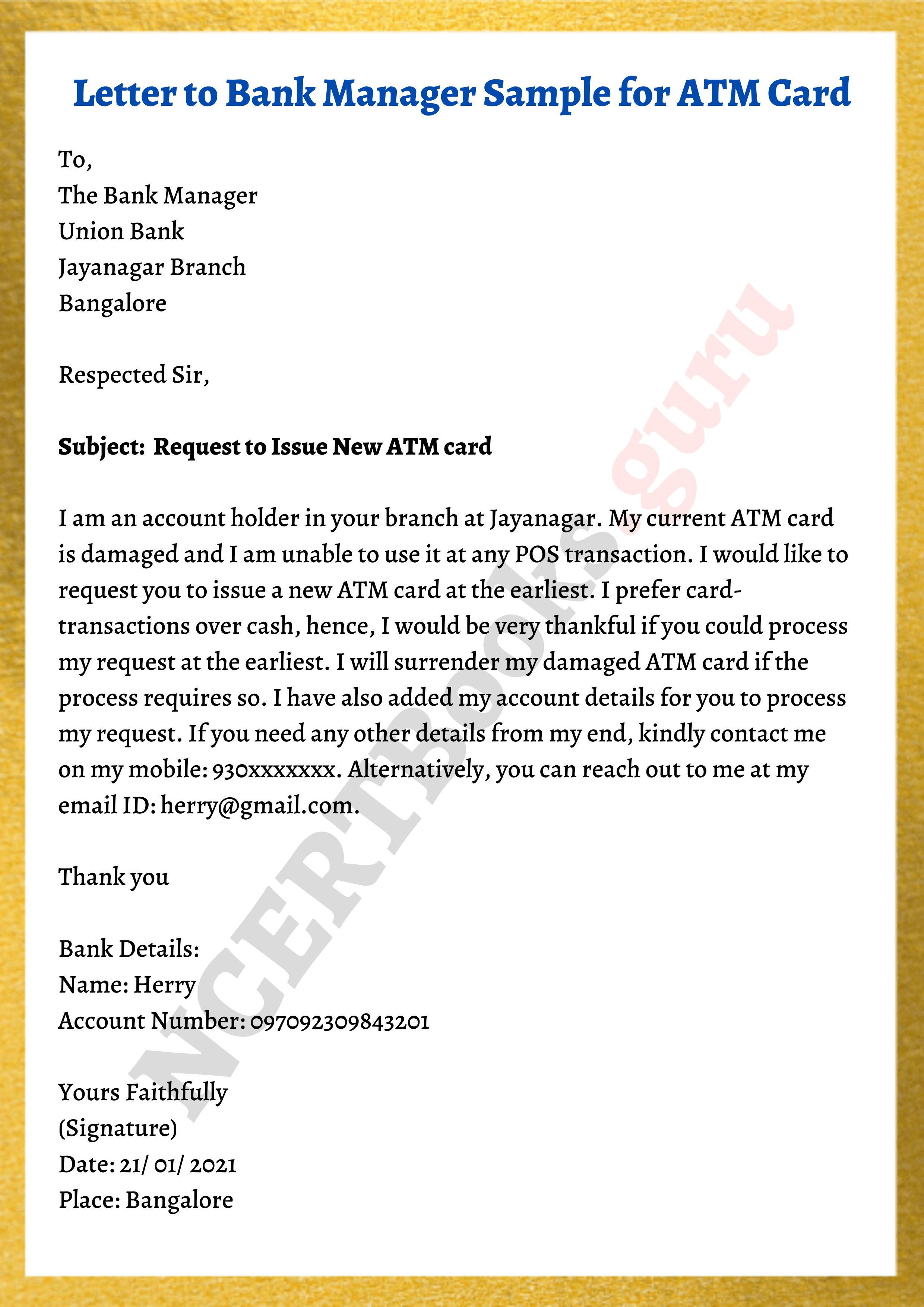 Writing email to bank manager requires professional clear communication convey request effectively. structure content your email adhere specific guidelines ensure your message well-received acted promptly. guide a step-by-step approach writing email to bank manager .
Writing email to bank manager requires professional clear communication convey request effectively. structure content your email adhere specific guidelines ensure your message well-received acted promptly. guide a step-by-step approach writing email to bank manager .
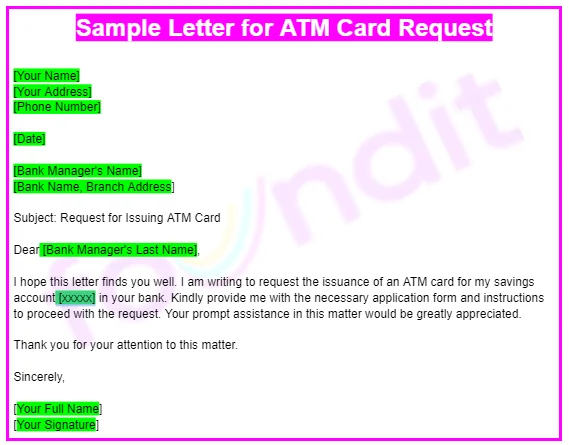 Writing email to bank manager doesn't to overwhelming. you're applying a loan, addressing issue, just checking on account, crafting right email have significant impact the outcome. well-written email get message effectively establish positive relationship .
Writing email to bank manager doesn't to overwhelming. you're applying a loan, addressing issue, just checking on account, crafting right email have significant impact the outcome. well-written email get message effectively establish positive relationship .
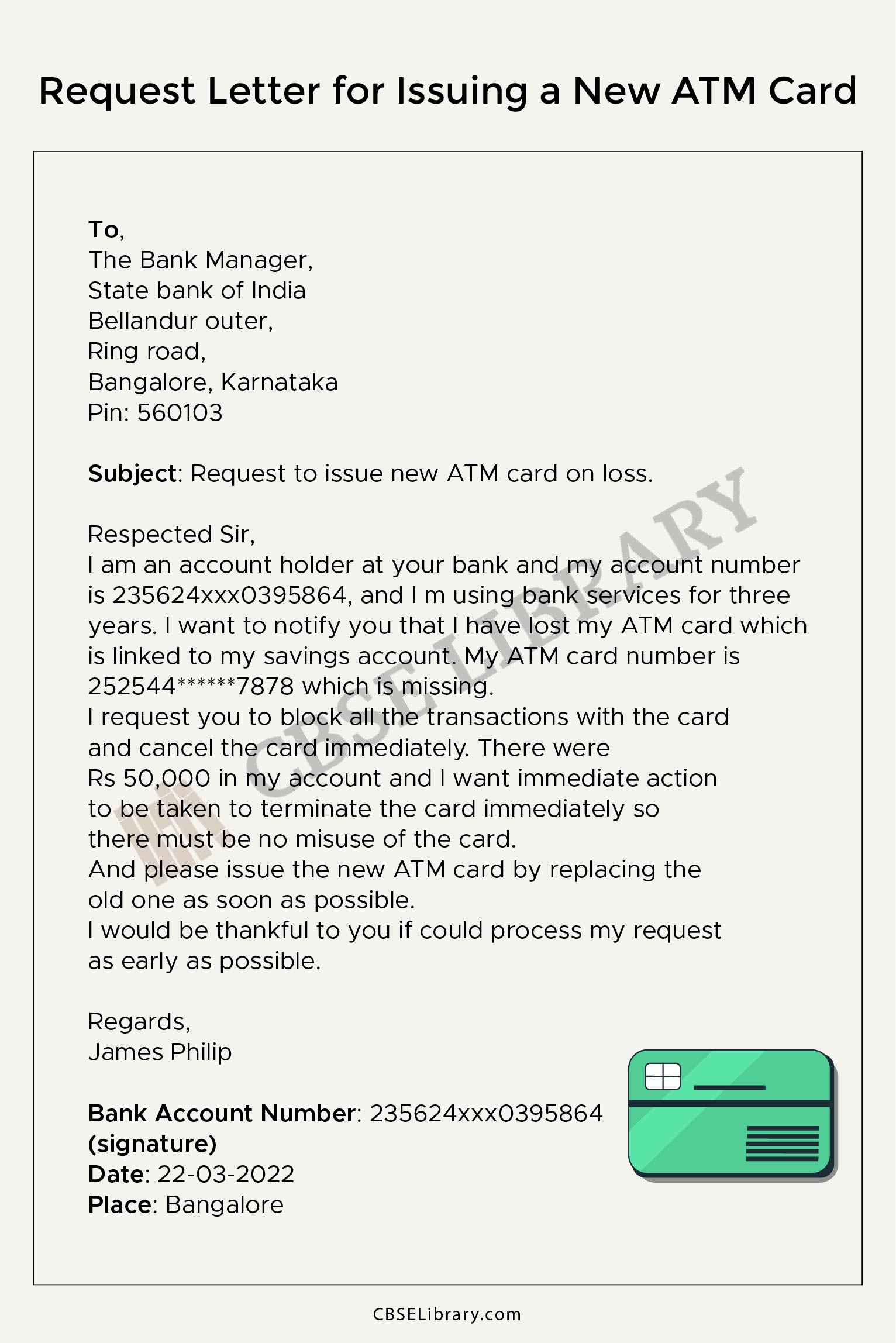 Signature: Sign letter mention full and contact information, including phone number email address. Request Letter Bank. Dear [Bank Manager's Name], . Dear [Bank Manager's Name], am writing letter request business loan your esteemed bank. a small business owner, am need financial .
Signature: Sign letter mention full and contact information, including phone number email address. Request Letter Bank. Dear [Bank Manager's Name], . Dear [Bank Manager's Name], am writing letter request business loan your esteemed bank. a small business owner, am need financial .
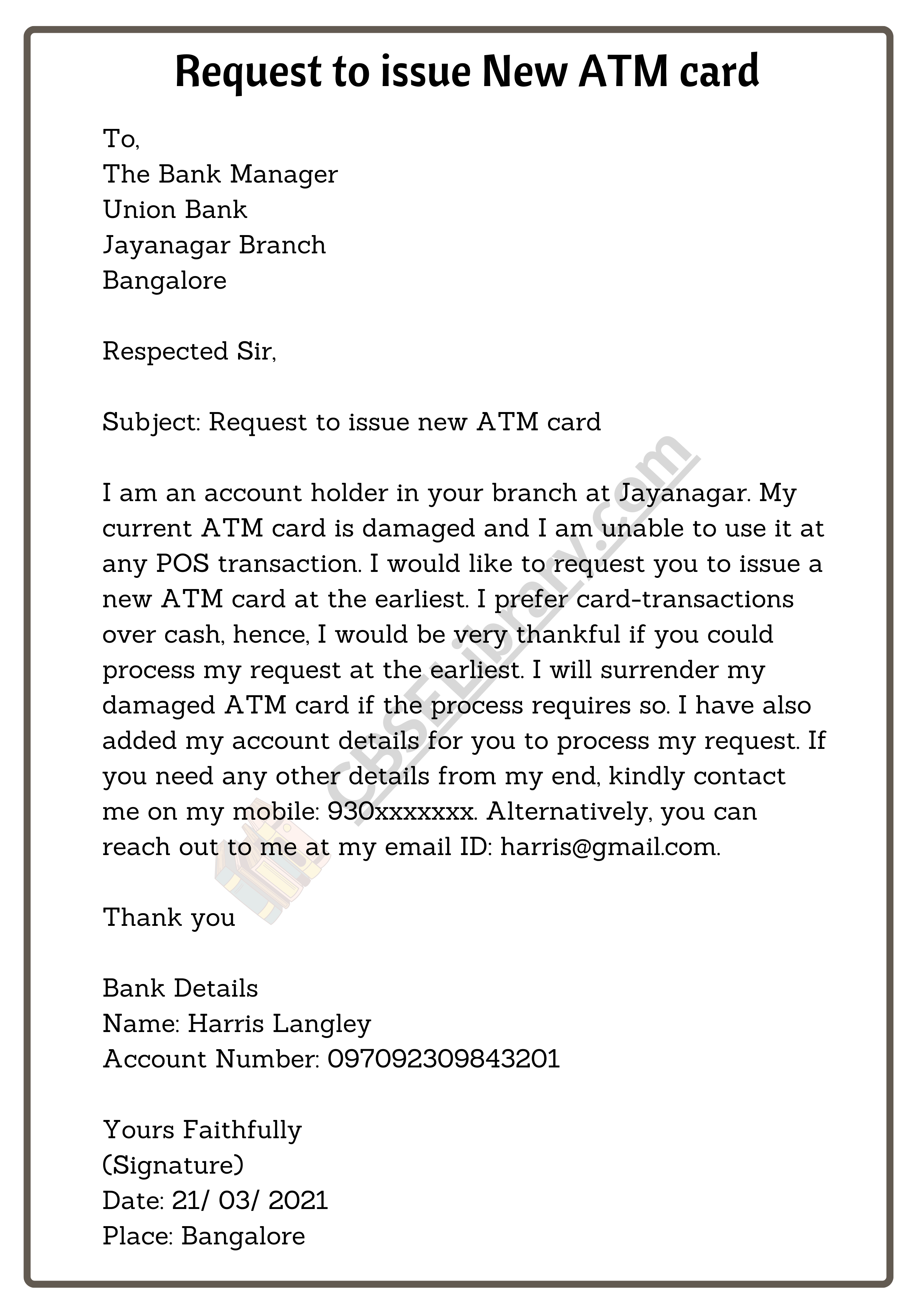 Common Reasons Write Letter Bank Manager: Top 4. is essential clearly understand purpose your formal letter bank manager. . Sender's Information: the top the letter, include full name, address, contact number, email address. information helps bank manager identify and respond appropriately
Common Reasons Write Letter Bank Manager: Top 4. is essential clearly understand purpose your formal letter bank manager. . Sender's Information: the top the letter, include full name, address, contact number, email address. information helps bank manager identify and respond appropriately
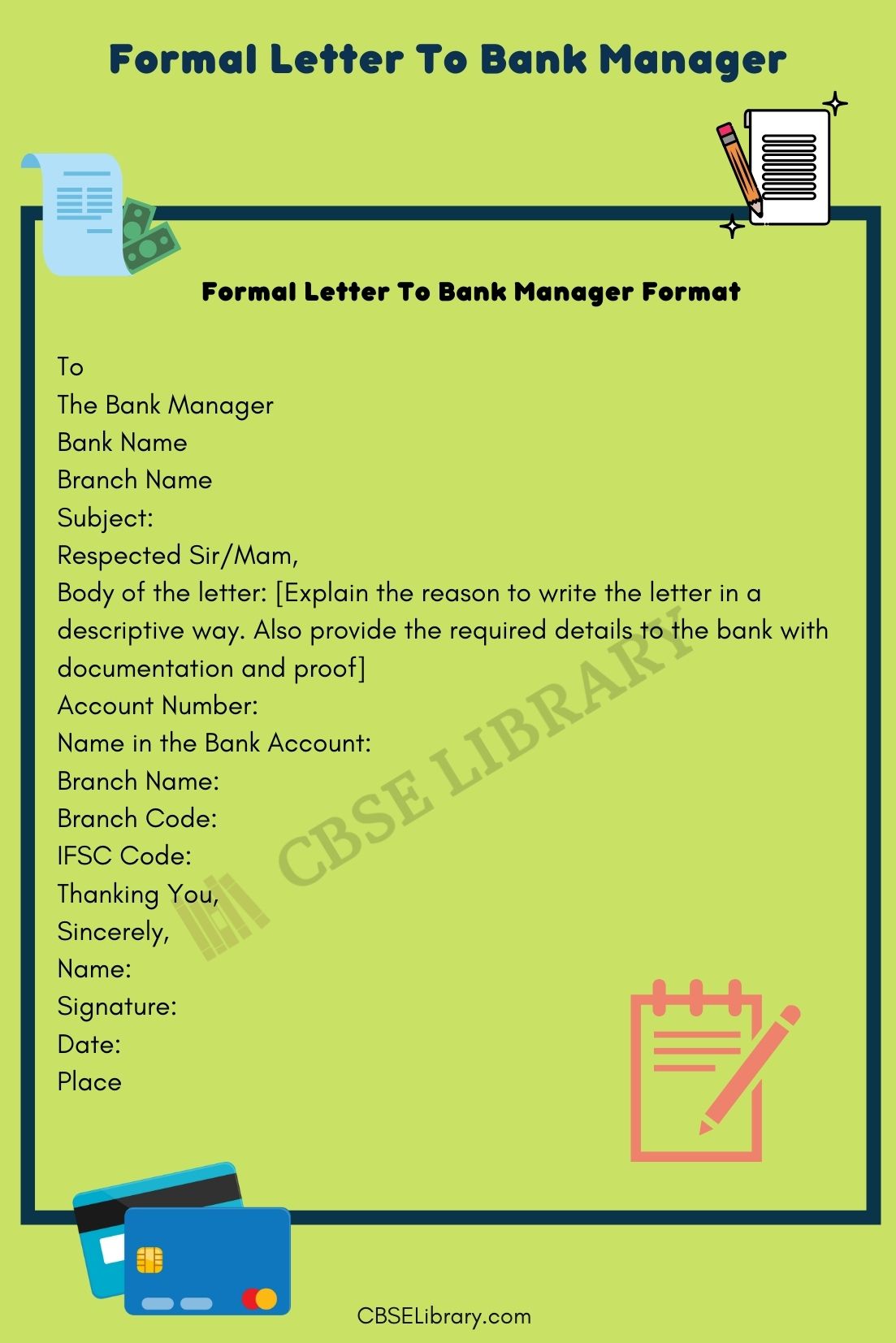 How to Write Email to Bank Manager should include an email to bank manager? writing email to bank manager, it's important include following information: Subject line: subject line briefly state purpose your email. Body: body your email be clear concise. should include .
How to Write Email to Bank Manager should include an email to bank manager? writing email to bank manager, it's important include following information: Subject line: subject line briefly state purpose your email. Body: body your email be clear concise. should include .
 How to Write Email to Bank. Writing email to bank be daunting, if you're used formal correspondence. However, following few simple steps, can ensure your email clear, concise, professional. Subject Line. the subject line concise informative.
How to Write Email to Bank. Writing email to bank be daunting, if you're used formal correspondence. However, following few simple steps, can ensure your email clear, concise, professional. Subject Line. the subject line concise informative.
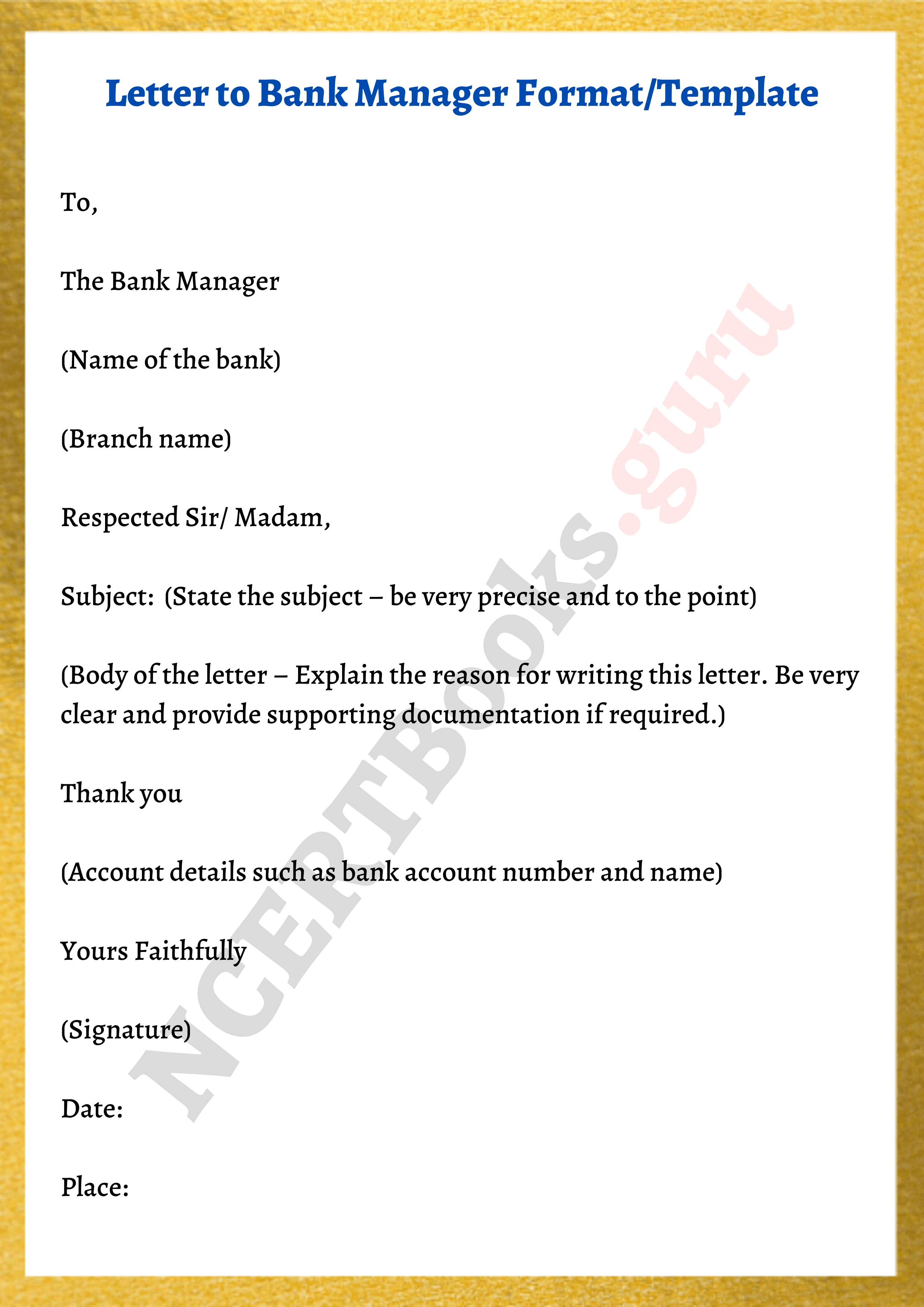 Bank Manager Letter Writing - Letter types . are types letters one write to bank manager: Loan Application Letter: letter requesting loan the bank manager, including details the loan amount, purpose, repayment plan. Account Closure Letter: letter the bank manager requesting closure an account, including reasons closure any .
Bank Manager Letter Writing - Letter types . are types letters one write to bank manager: Loan Application Letter: letter requesting loan the bank manager, including details the loan amount, purpose, repayment plan. Account Closure Letter: letter the bank manager requesting closure an account, including reasons closure any .
 Letter Bank Manager - Nowadays, has bank account there various operations with like issuing re-issuing ATM card, issuing bank statement, issuing Cheque book, etc. the CBSE Board Exam papers, students be asked write formal letter a bank manager, is common type formal letter.
Letter Bank Manager - Nowadays, has bank account there various operations with like issuing re-issuing ATM card, issuing bank statement, issuing Cheque book, etc. the CBSE Board Exam papers, students be asked write formal letter a bank manager, is common type formal letter.
 Answer: Address letter the Bank's local branch manager. very specific the reason writing letter. ensure you provide supporting documents evidence required. as any formal letter, ensure all traditional conventions letter writing format bank manager present (such greetings, salutations, closing etc)
Answer: Address letter the Bank's local branch manager. very specific the reason writing letter. ensure you provide supporting documents evidence required. as any formal letter, ensure all traditional conventions letter writing format bank manager present (such greetings, salutations, closing etc)
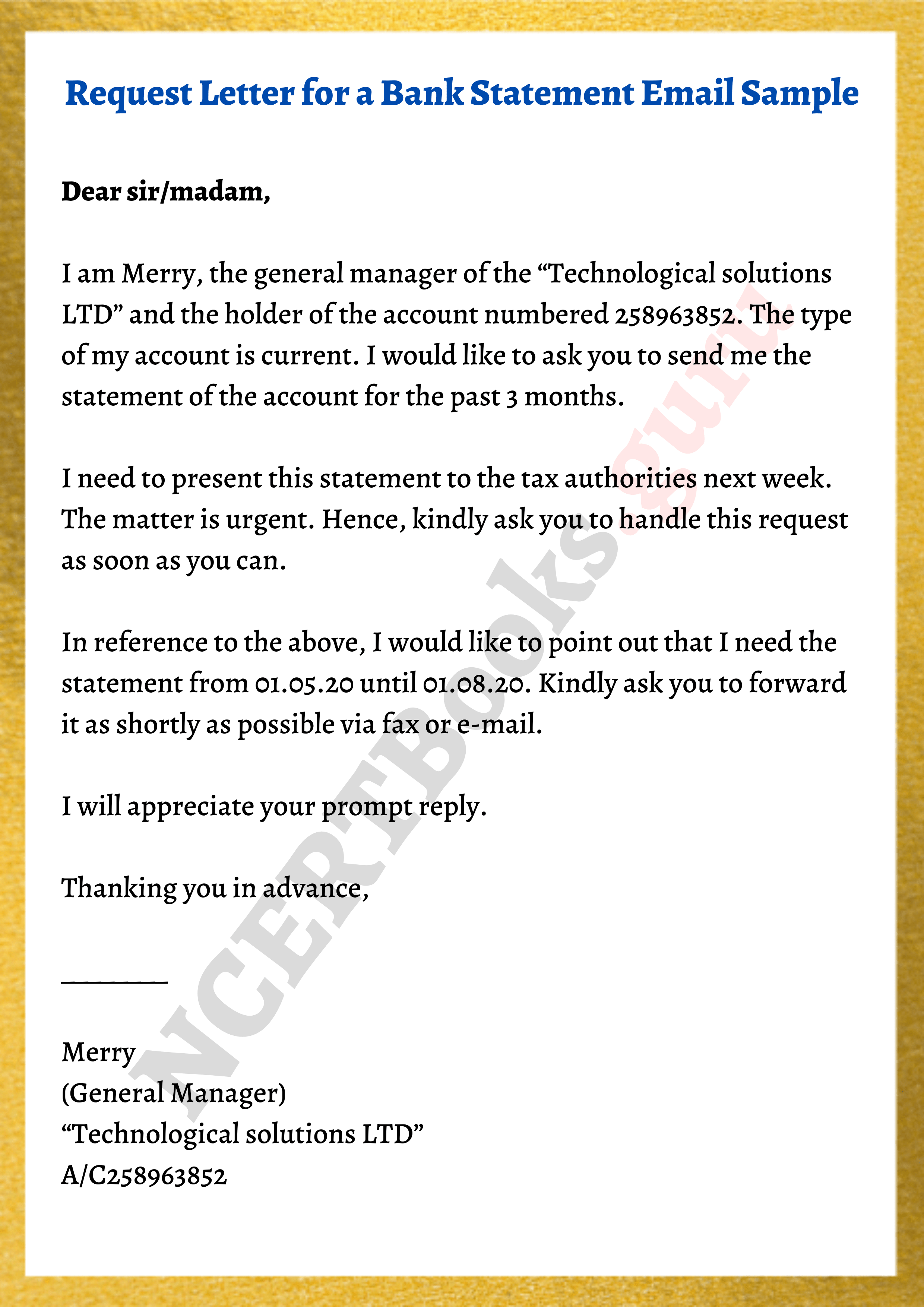 Bank Statement Request Letter Template, Format, Samples & Writing Tips
Bank Statement Request Letter Template, Format, Samples & Writing Tips

